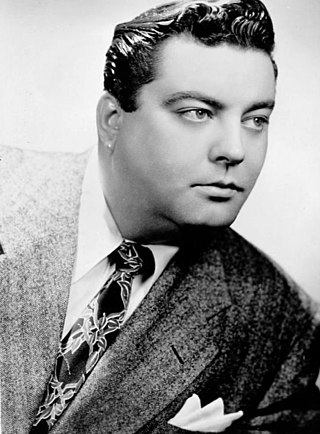
John Herbert Gleason, known as Jackie Gleason, was an American actor, comedian, writer, and composer also known as "The Great One". He developed a style and characters from growing up in Brooklyn, New York, and was known for his brash visual and verbal comedy, exemplified by his city bus driver character Ralph Kramden in the television series The Honeymooners. He also developed The Jackie Gleason Show, which maintained high ratings from the mid-1950s through 1970. The series originated in New York City, but filming moved to Miami Beach, Florida, in 1964 after Gleason took up permanent residence there.

The Borscht Belt, or Yiddish Alps, is a colloquial term for the mostly defunct summer resorts of the Catskill Mountains in parts of Sullivan and Ulster counties in the U.S. state of New York, straddling both Upstate New York and the northern edges of the New York metropolitan area.
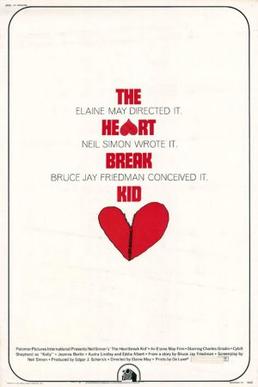
The Heartbreak Kid is a 1972 American romantic black comedy film directed by Elaine May and written by Neil Simon, starring Charles Grodin, Cybill Shepherd, Jeannie Berlin, Audra Lindley, Eddie Albert, and Doris Roberts. It is based on the short story "A Change of Plan", written by Bruce Jay Friedman and first published in Esquire in 1966.

Crossing Delancey is a 1988 American romantic comedy film adapted by Susan Sandler from her play of the same name, and directed by Joan Micklin Silver. It stars Amy Irving and Peter Riegert. The film also features performances from Reizl Bozyk, David Hyde-Pierce, Sylvia Miles and Rosemary Harris. Amy Irving was nominated for a Golden Globe for the film, for Best Actress in a Motion Picture - Comedy or Musical.

Philip "Fyvush" Finkel was an American actor known as a star of Yiddish theater and for his role as lawyer Douglas Wambaugh on the television series Picket Fences, for which he earned an Emmy Award for Outstanding Supporting Actor in a Drama Series in 1994. He is also known for his portrayal of Harvey Lipschultz, a crotchety history teacher, on the television series Boston Public.
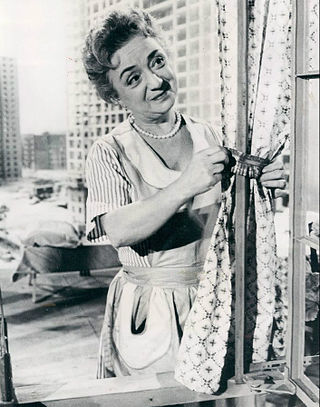
Molly Picon was an American actress of stage, screen, radio and television, as well as a lyricist and dramatic storyteller.

James Lewis Hoberman is an American film critic, journalist, author and academic. He began working at The Village Voice in the 1970s, became a full-time staff writer in 1983, and was the newspaper's senior film critic from 1988 to 2012. In 1981, he coined the term "vulgar modernism" to describe the "looney" fringes of American popular culture.
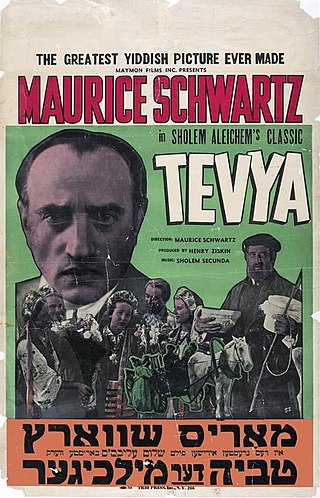
Tevya is a 1939 American Yiddish film, based on author Sholem Aleichem's stock character Tevye the Dairyman, also the subject of the 1964 musical Fiddler on the Roof. It was the first non-English language picture selected for preservation by the National Film Registry.

Sholom Secunda was an American composer of Ukrainian-Jewish descent, best known for the tunes of "Bei Mir Bistu Shein" and "Donna Donna".

Yidl Mitn Fidl, is a 1936 musical Yiddish film.
Reizl Bozyk, also known as Rose Bozyk and Róża Bożyk, was a Polish-born American actress of the Yiddish theatre. Her claim to mainstream fame was her sole film role, playing the interfering grandmother of Amy Irving in Joan Micklin Silver's film Crossing Delancey (1988). She also appeared in a memorable Law and Order episode "Night and Fog" which aired in season 3.
Miriam Kressyn, one of the "First Ladies of the Yiddish Theater", acted and sang on stage, film and radio; she wrote plays as well.

Green Fields is a 1937 American comedy-drama Yiddish film directed by Edgar G. Ulmer and Jacob Ben-Ami. The film features child actor Herschel Bernardi, later to be an adult star on Broadway, in films and on television.
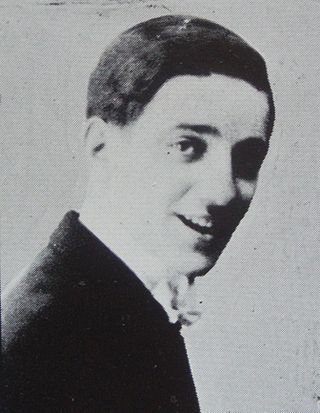
Hymie Jacobson, also known as Hy Jacobson (1895–1952), was an American actor and composer in Yiddish vaudeville, films and theater. Born 1895 in Chicago to actors Joseph and Bessie Jacobson. His sister, Henrietta, married Yiddish theatre actor Julius Adler; his brother, Irving, was also a performer. He and Irving also owned some of the key venues for Yiddish theater in New York City. He played child roles from the age of 4 in Cincinnati. His first adult role was at the Arch Street Theatre in Philadelphia (1917) as the comic in Panie Romani. In 1918 he played in the Peoples Theater and the following year was buff-comic at the Second Avenue Theater in the Yiddish Theater District. In 1921 he played at Boris Thomashevsky's National Theater, in 1927 at the Public Theater, then in Boston and Chicago.

Julius Adler was a Jewish-American actor, writer, and director in Yiddish theater.
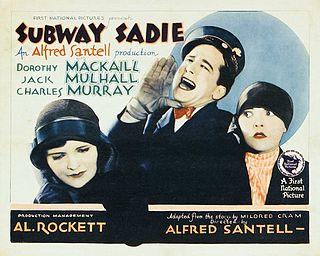
Subway Sadie is a 1926 American silent comedy-drama film directed by Alfred Santell. Adapted from Mildred Cram's 1925 short story "Sadie of the Desert", the film focuses on a relationship between New York salesgirl Sadie Hermann and subway guard Herb McCarthy, who meet on the subway and become engaged. However, after Sadie receives a promotion, she must choose between her new job and marrying Herb. The cast also includes Charles Murray, Peggy Shaw, Gaston Glass, and Bernard Randall.
Lou Menchell was an American comedian and emcee who used Yiddish humor in his impersonations, songs, and standup.

Yiddish cinema refers to the Yiddish language film industry which produced some 130 full-length motion pictures and 30 shorts during its heyday from 1911 and 1940. Yiddish film almost disappeared after World War II, due to the Holocaust and the linguistic acculturation of Jewish immigrants, though new pictures are still made sporadically.
Joseph Seiden was a pioneering American Yiddish language film producer of the early twentieth century. He released a large number of low-budget, sentimental Yiddish dramas during the 1930s and 1940s. He also directed Paradise in Harlem, a 1940 musical film with an African American cast.

Samuel Goldenberg (1883/1884–1945) was an actor in Yiddish theatre on stage and screen.














